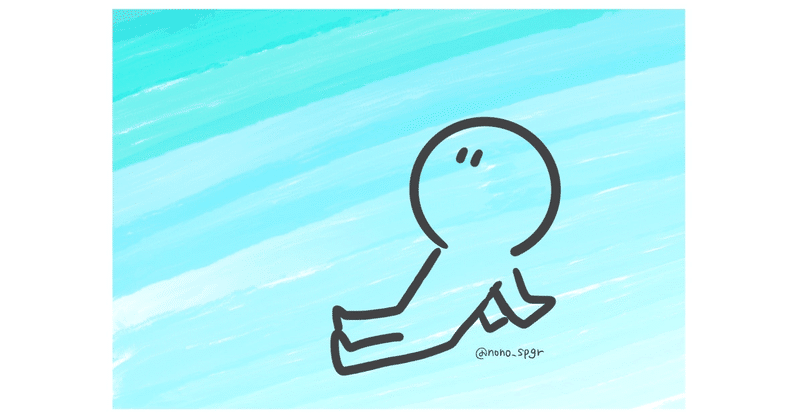
(英語&日本語)自分が教えている日本語学習者(中級)の方へ送ったメッセージです
自分が教えている日本語学習者の方へ送ったメッセージです
I think I understand your goal mostly.
I just prepared some materials and explanations below. Topic is about how to improve vocabulary and conversation skills in Japanese.
I try my best to provide post-lesson materials or notes based on your needs.
My typical lesson approach is two things.
One is using PDF(document) file.
Two is using whiteboard, especially when the student needs more detailed explanation or breakdown of the learning item.
This document(what I can offer in lesson) consists of three parts:
1,About vocabulary
2,About conversation skills
3,Additional suggestions for materials, such as comedy or drama
At the moment, my suggestion is
①語彙(about vocabulary)
何か使っている単語帳があれば、それを使ってもいいと思います。PDFファイルなどがあれば下さい。もしくは、本のタイトルがわかれば買ってみたいと思います。
覚える量は例として、一日10単語、その単語を使って短い文も作ってみてほしいです。音声ファイルを僕へ提出してください。チェックします。
(If you have any vocabulary books that you use, you could use those, please give me PDF files if you have them. Or if you know the title of the book, I would like to buy it.
I would like you to try to remember, as an example, 10 words a day and also make a short sentence using the words. Submit the audio file to me. I will check it.)
(This is another example of materials)
他にもおすすめの語彙の教材がありました。
このサイトです。https://iknow.jp/content/japanese
ご存知かもしれません。
6000の単語が、例文付きで、載っています。内容はよく使う表現がたくさん含まれているように見えます。
(This website looks great because it seems to cover some of the most common vocabularies in Japanese, with example sentences in JP/EN)
以下は一部の例です。
Some examples, how would you like it??
例1
かかる(from Core 3000 step 8)
Aさん:あれ?花子さんは今日休みですか?
Bさん:はい、花子さん、インフルエンザにかかったみたいです。
例2
世話(from core 4000 step 8)
A:旅行の間、犬の世話をしてくれませんか?
B:わかりました。
OR
B:え~、めんどくさいですね、わかりましたよ。焼き肉をおごってくださいね。
例3
対応(from core 5000 step 8)
A:彼はいつもすばやい対応をするね。
B:確かに、彼は仕事ができるね。
例4(from core 6000, step 8)
A:太郎さんって、仕事、いつお休み?
B:うちの会社は週休二日です。土日が休みです。
A:そうなんだ。
②会話力(how to improve conversation skills)
さまざまなトピック(趣味·旅行·食べ物·音楽·映画·文化·本·学問·将来の夢·昨日何を食べたか·今日何をする予定か·明日何をするか·最近あった嬉しいこと·最近の学び·気づきなど)で会話しましょう。
答えていただいたら、さらにこちらから質問をして、深掘りをしていきたいと思います。具体的に情報を加えて、より濃い内容の日本語を話す(文を作る)練習ができれば良いと思います。いかがでしょうか?
(Let’s have conversations on a variety of topics (hobbies, travel, food, music, movies, culture, books, academics, future dreams, what you ate yesterday, what you plan to do today, what you will do tomorrow, happy things that have happened recently, recent learning and thoughts, etc.).)
(Once you have answered, I would like to ask you further questions and dig deeper. It would be good if you could practice speaking Japanese (making sentences) with more dense content by adding specific information. What would you think?)
例(以下は、寿司をトピックにした場合の例です。3パターンを考えました。)(Below is an example of using sushi as a topic; three patterns were considered.)
1→私はすしが好き。マグロがとても好き。
2(より具体的に)(どこで?誰と?いつ?どんな気持ち? など)→私は去年の12月に東京のスシローに行きました。友達と2人でマグロを食べて、とてもおいしかったです。マグロには豊富にタンパク質が含まれているので、体の元になります。友達と食べながら、幸せな気持ちになりました。日本のお寿司はおいしいし、安いし、体にも良いからです。(In this pattern, I might ask you to speak a little more about your topic, for example, I understand you like sushi, and also, could you tell me when you ate, what your favorite taste is, do you have a similar restaurant near your home?, also, what is good point of eating sushi for you? and so on,,,)
3(「混む」「待つ」「以上」を使ってください)→昨日、大阪のスシローに行きました。お昼11時30分ごろ行ったのですが、とっても混んでいて、1時間以上待たされました!😓 (This pattern, I might ask you to use certain vocabularies or phrases you just learned recently, because it would be good practice if you try to use what you just learned.)
Before I finish, let me tell you about other materials(drama, comedy) which might interest you to learn and practice Japanese.
Anime→Sorry, I’m not sure about animation.
Drama→I will introduce one of very popular drama in Japan, recently, the title is 「架空OL日記
」https://tver.jp/episodes/epid7owr9t
youtube intro is
https://www.youtube.com/watch?v=8iaMSJy6ykE
This one is kind of woman talk in the office setting and comedy vibe. The main character, he is a popular comedian and he wrote the scenario.
Comedy show→
This is my favorite comedy. What they talk is not so violent, sensitive and easy to understand , with everyday Japanese. The duo’s name is Taka and Toshi.
https://www.youtube.com/watch?v=5_L4_o-r-YE&pp=ygUV44K_44Kr44Ki44Oz44OJ44OI44K3
another fun tv program called 月曜から夜ふかし(Getsuyo kara yofukashi)(“staying up late on Monday night”)
Do you know this one?
This is also fun program, I think.
Basically interviewing people on the street, most of what they talk is quite natural Japanese, some time they talk about a little stupid things.
This series is also available through Tver.
https://tver.jp/episodes/ep8oyuwpef
this is a short clip from YouTube
https://www.youtube.com/watch?v=jv_m7IefRyA&pp=ygUY5pyI5puc44GL44KJ5aSc44G144GL44GX
I didn’t mention the movies, but I’m glad if you share your favorite movie to work on, and maybe I can help you to practice some phrases in the movie.
長くなりましたが
お役に立てれば幸いです
Thank you for reading!
この記事が気に入ったらサポートをしてみませんか?
